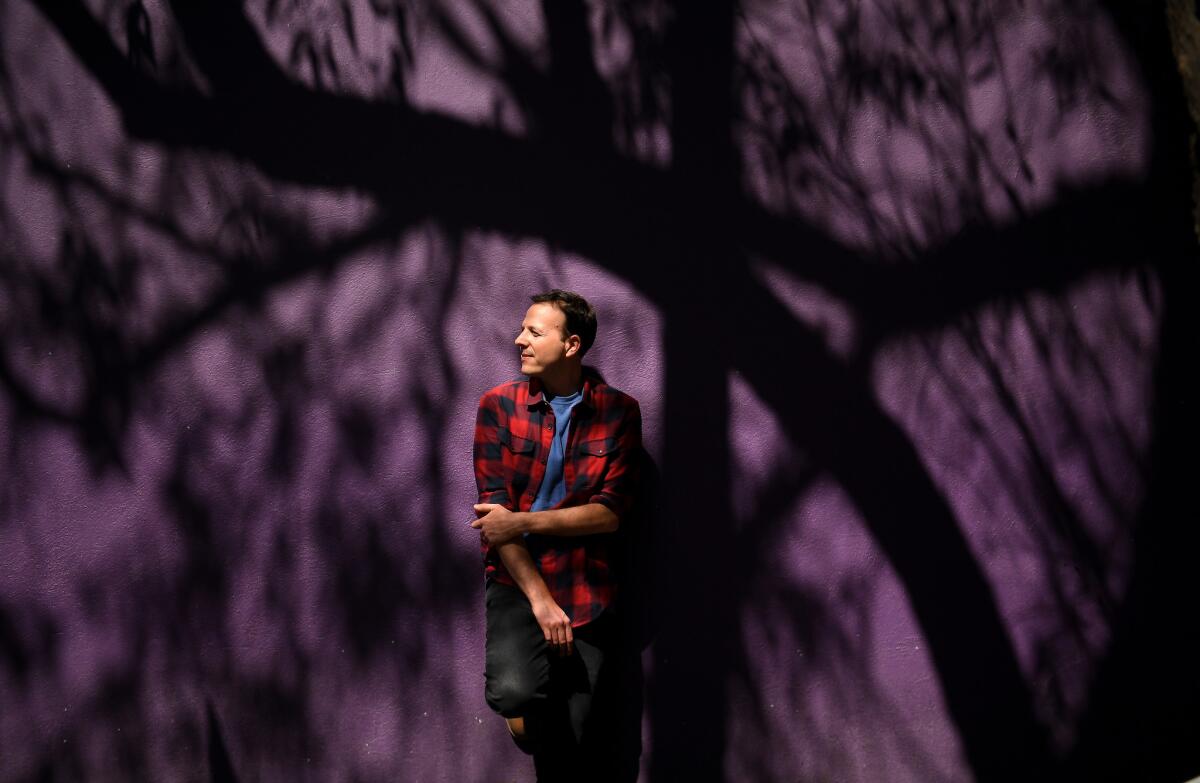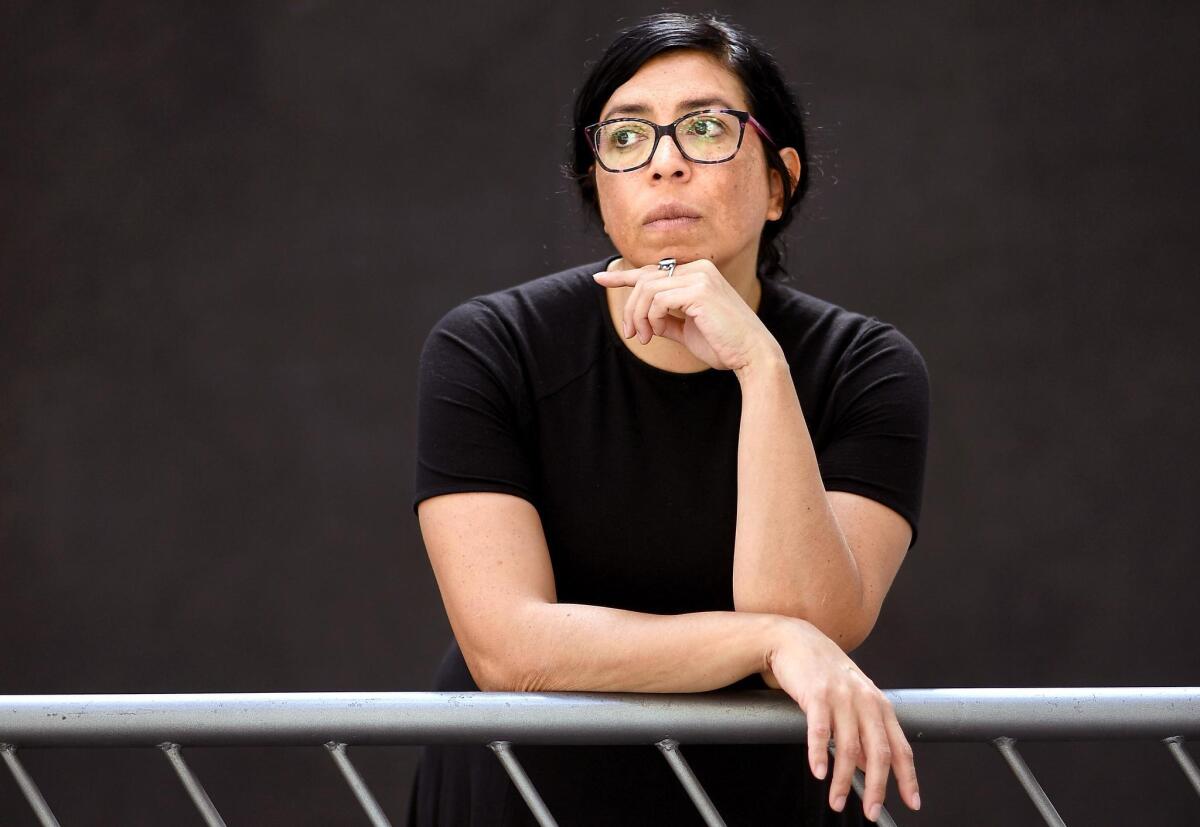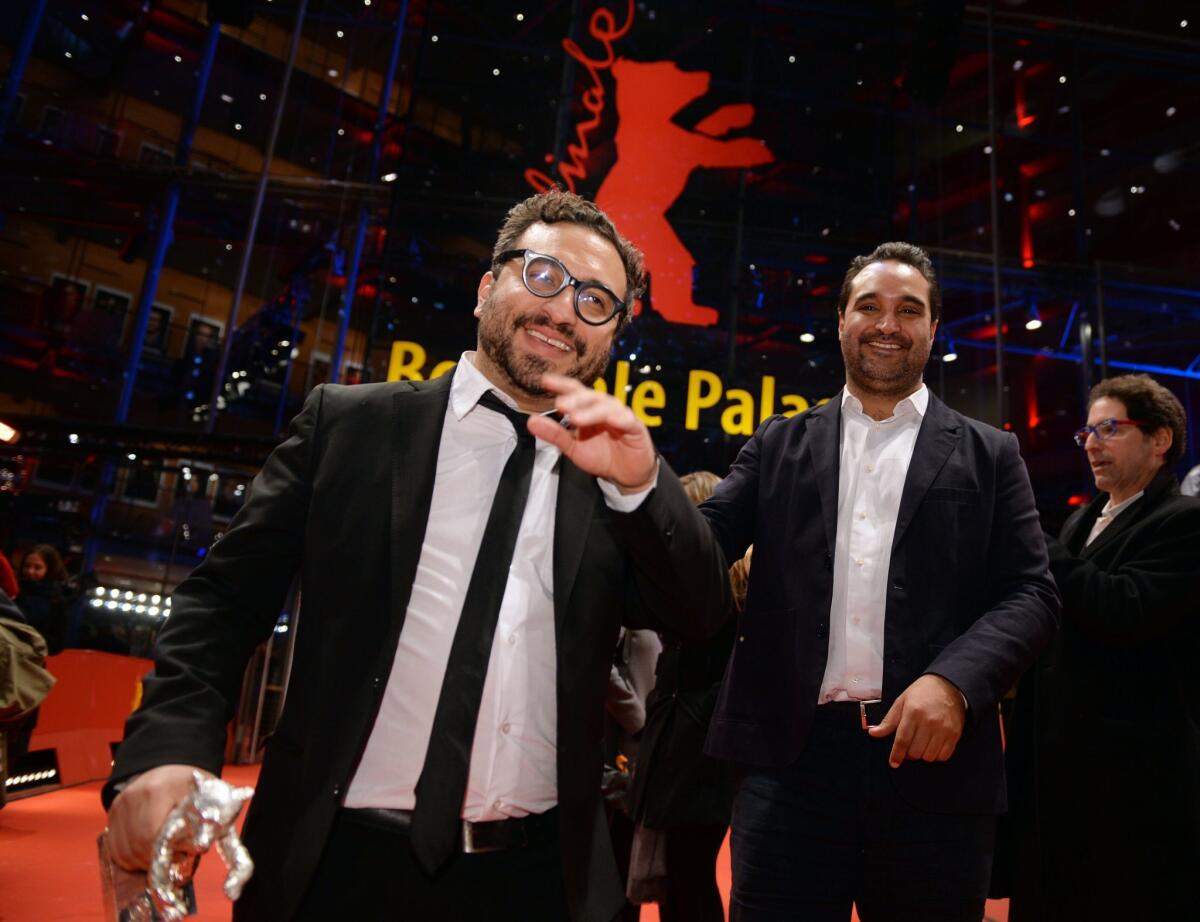Beyond Mexico’s Oscar darlings, here are three Mexican filmmakers you need to know

- Share via
Following in the footsteps of Oscar darlings Guillermo del Toro, Alejandro Iñárritu and Alfonso Cuarón, a new generation of Mexican filmmakers is making its mark. Last year, Mexico churned out a record 175 films, which won more than 100 awards internationally. Here are a few important filmmakers south of the border that you should know.
Amat Escalante

The son of a Mexican painter and an American researcher, Amat Escalante was 12 when he moved from Guanajuato, Mexico, to Lakewood, Calif. School there felt unbearable. All he cared about was movies. So at 15 he dropped out — in part because he heard that his idol Werner Herzog had done the same thing.
Escalante spent the ensuing years working low-wage jobs and giving himself a film education, watching the work of auteurs like Stanley Kubrick on repeat and shooting his own short films with a 16-millimeter camera and using neighbors as actors. He returned to Mexico to be a part of the country’s burgeoning film scene, and because he knew it was a good place to tell stories.
“There is drama where justice is not present,” he says. “Mexico is full of that.”
His poetic films, which deal unflinchingly with brutal themes such as the drug war and domestic violence, have won praise from critics but have also triggered controversies.
When his drama “Heli” debuted in competition at the 2013 Cannes Film Festival, its graphic portrayal of torture provoked protests. But in the end, the film, about a family torn apart by a brush with drug traffickers, won Escalante the festival’s award for best director.
And for his most recent film, “The Untamed” (“La Región Salvaje”), Escalante won the Silver Lion award for directing at the Venice Film Festival.
Tatiana Huezo

Before she ever picks up the camera, documentary filmmaker Tatiana Huezo spends weeks or even months with her subjects, living alongside them. It’s a waiting game that helps her gain intimacy, and that makes her films stand out.
“You have to persevere until a door opens,” Huezo says. “If it doesn’t, you don’t have a movie.”
Born in El Salvador to a Mexican mother, Huezo moved to Mexico at age 4 in part to escape civil war. She later explored that conflict with her first feature-length documentary “The Tiniest Place,” which featured oral histories about the Salvadoran conflict.
The vision of Mexico in the outside world is cliche.... When I watch Hollywood films about Mexico, I don’t identify with anything.
— Tatiana Huezo, filmmaker
Her next documentary, 2016’s hypnotic “Tempestad,” centers on two women’s stories of human trafficking in Mexico. It’s a film about violence, yet instead of showing conflict, the camera pans for soulful shots of the Mexican countryside and closeups of the faces of everyday Mexicans. The end result is an eerie sense that in Mexico, violence could be inflicted on anyone at anytime. The film was Mexico’s entry for this year’s foreign language film Oscar.
Now at work on a feature-length fiction film about children growing up in one of Mexico’s most violent states, Huezo says she strives for a more nuanced and complex vision of Mexico than what Hollywood films typically offer.
“The vision of Mexico in the outside world is cliche; it’s limited,” she said. “When I watch Hollywood films about Mexico, I don’t identify with anything.”
Alonso Ruizpalacios

Born in Mexico City and trained at London’s Royal Academy of Dramatic Art, Alonso Ruizpalacios wrote his 2015 debut feature, “Güeros” while the country was reeling from the drug war launched by former President Felipe Calderón.
Shot in black-and-white, the film is a sweet tale about two brothers searching Mexico City for an aging folk musician named Epigmenio Cruz. While it touches on social divisions that exist in Mexican society, the film at its heart is a love letter to the city, its people and the way they relate and speak.
“I wanted to make a film about something else,” he says. “It was kind of a celebration of the city.”
“Museum,” his second feature, premiered last month at the Berlin Film Festival, where it won Ruizpalacios and co-writer Manuel Alcala the prize for best screenwriting. Starring Gael Garcia Bernal, it’s a road-trip movie based on the real-life theft of pre-Hispanic artifacts from Mexico City’s National Museum of Anthropology.Ruizpalacios has dabbled in Hollywood, shooting episodes for the Netflix hit “Narcos” and the first episode of the upcoming Starz show “Vida.” No matter what he’s working on, he says he’s guided by a simple mantra: “Let’s just try and make a film that we would like to see.”
Twitter: @katelinthicum
ALSO
Review: Amat Escalante’s remarkable erotic horror of Mexico’s 'The Untamed' is unnerving
Guillermo del Toro's 'The Shape of Water' is the true wonder of awards season
The biggest entertainment stories
Get our big stories about Hollywood, film, television, music, arts, culture and more right in your inbox as soon as they publish.
You may occasionally receive promotional content from the Los Angeles Times.








